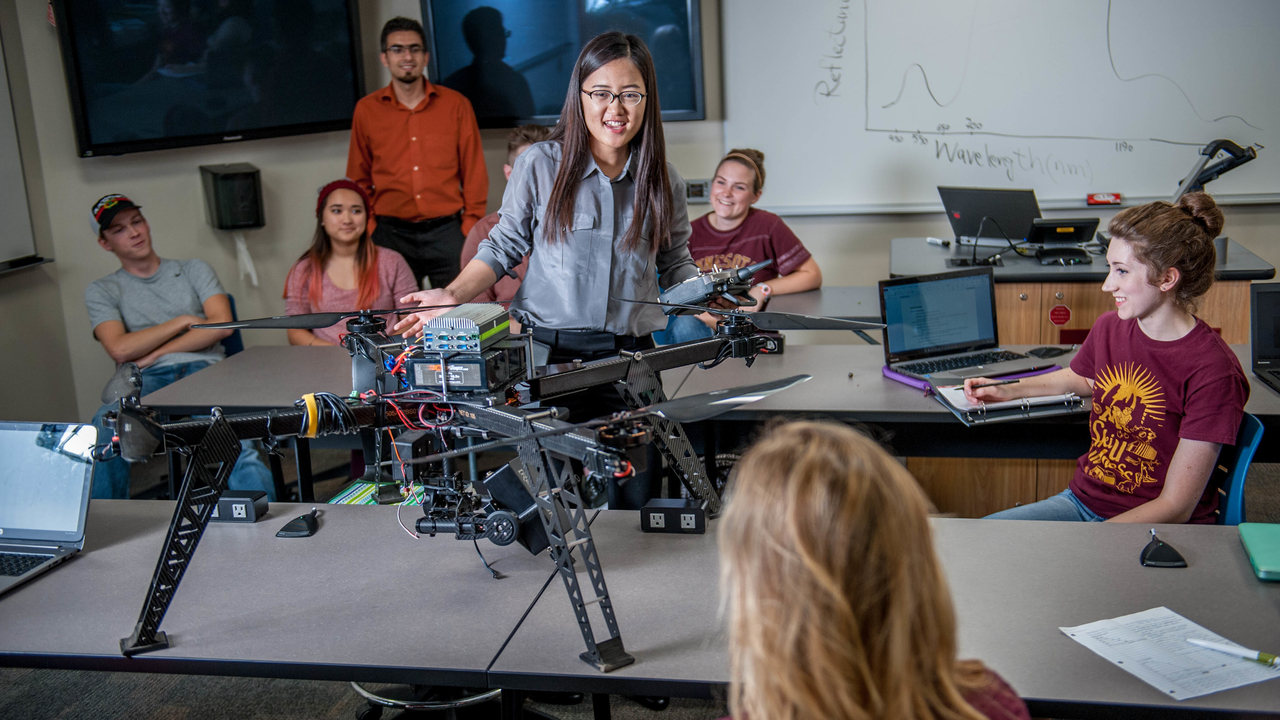
UMN Associate Professor Ce Yang, who has used the Halo platform to find new research partnerships, seen here with students and an agricultural drone.
For University of Minnesota researchers seeking corporate connections through networking and social media sites, Halo stands out for its straightforward platform and clear purpose: connect corporate R&D teams with research scientists and vice versa.
Launched at University of Chicago in 2020, Halo uses networking technologies to match up companies and scientists who have shared interests to accelerate scientific innovation and advance solutions. Scientists who use the platform can uncover new applications for their work, find alternative sources of funding, and identify industry partners they may not have known about. According to the Halo website, more than 4,800 scientists from across the world use the platform to connect with a wide variety of companies, including Takeda, Bayer, PepsiCo, Procter & Gamble, and many others.
How It Works
Researchers create a free account on Halo highlighting their academic accomplishments and research/partnering interests. Companies post requests for proposal (RFPs) which researchers can review and respond to by submitting a simple, non-confidential proposal. While Halo is free for scientists and universities, companies pay to post the opportunities and use the proposal review system.
Seeing Results
Leza Besemann, research partnerships manager in the University's Corporate Engagement Center, is excited about the potential of this platform for the UMN research community.
"Even though many UMN researchers are aware that corporate partnerships are an option for them, they may not know how to get the process started or where to look for opportunities," said Besemann. "The Halo platform is so simple and researchers can easily scan new RFPs as they are posted. It's an excellent entry point that can lead to great opportunities and valuable connections."
Two UMN researchers have received funding through the Halo platform in the past year. Ce Yang, associate professor in Bioproducts and Biosystems Engineering, is partnering with Bayer on a project to research airborne and ground sensing technologies to advance precision agriculture. And Paige Novak, professor & Joseph T. and Rose S. Ling Chair in Environmental Engineering, Department of Civil, Environmental, and Geo-Engineering is working with Oldcastle Infrastructure on a project focused on removing nitrogen from urban stormwater runoff. Several other UMN research proposals are currently under review.
Benefits of Corporate Partnerships
University researchers rely on external grants, institutional support, and other sources to fund their labs and research projects. While federal grants remain the largest source of funding for research at the University, they are increasingly competitive, and corporate partnerships provide needed resources to support innovation and advance new ideas. For researchers, corporate partnerships can offer new funding streams for existing projects, help identify new applications for their research, and lead to lasting partnerships with companies that have similar research interests and goals.
Learn more about Halo and create a free account. Contact Leza Besemann (besem007@umn.edu) to discuss your research and explore corporate partnership opportunities.